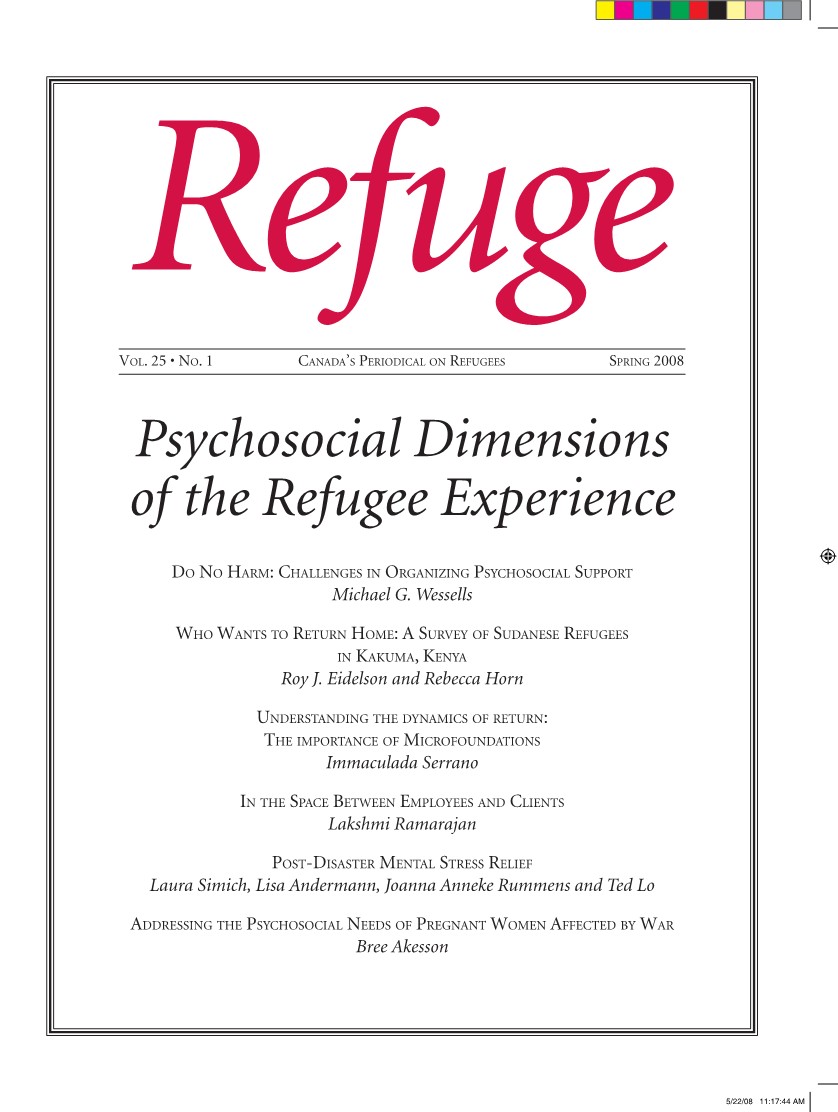Addressing the Psychosocial Needs of Pregnant Women Affected by War: Program Approaches and Program Gaps
DOI:
https://doi.org/10.25071/1920-7336.21397Keywords:
female forced migrants, pregnant refugees, psychosocial programs, mental healthAbstract
Today’s female refugee and internally displaced population faces the increasing risk of adverse birth outcomes associated with stress related to conflict, flight, and displacement. Programs addressing the specific psychosocial needs of pregnant women in situations of war are scarce, and there is little consensus regarding best practices. Initiatives have recently emerged, including psychosocial groups, safe motherhood training, and social support systems, all which aim to alleviate the psychosocial stress experienced by this cohort. However, there remain existing program gaps, such as the absence of specific quality research, the use of a deficits-based vernacular concentrated on vulnerabilities, no focus on postpartum care, and little development of gender-based violence prevention initiatives addressing pregnancies resulting from rape. It is clear that more needs to be done to provide and support comprehensive quality psychosocial services for this population.Metrics
Downloads
Published
How to Cite
Issue
Section
License
Copyright (c) 2008 Bree Akesson

This work is licensed under a Creative Commons Attribution-NonCommercial 4.0 International License.
Refuge authors retain the copyright over their work, and license it to the general public under the Creative Commons Attribution-Non Commercial License International (CC BY-NC 4.0). This license allows for non-commercial use, reproduction and adaption of the material in any medium or format, with proper attribution. For general information on Creative Commons licences, visit the Creative Commons site. For the CC BY-NC 4.0 license, review the human readable summary.







